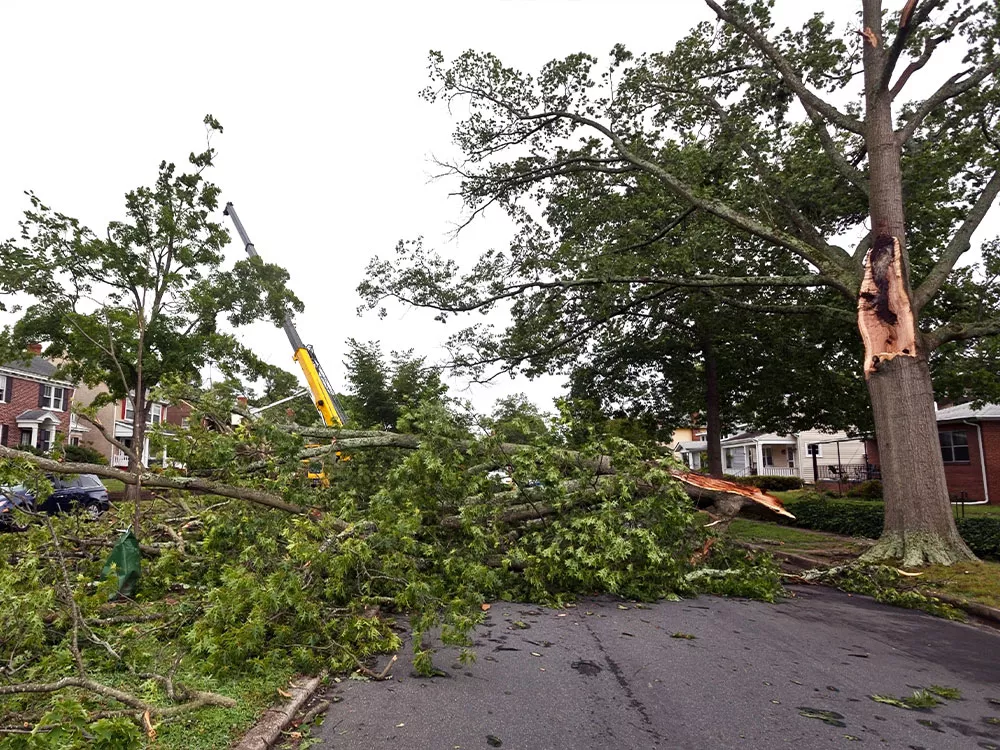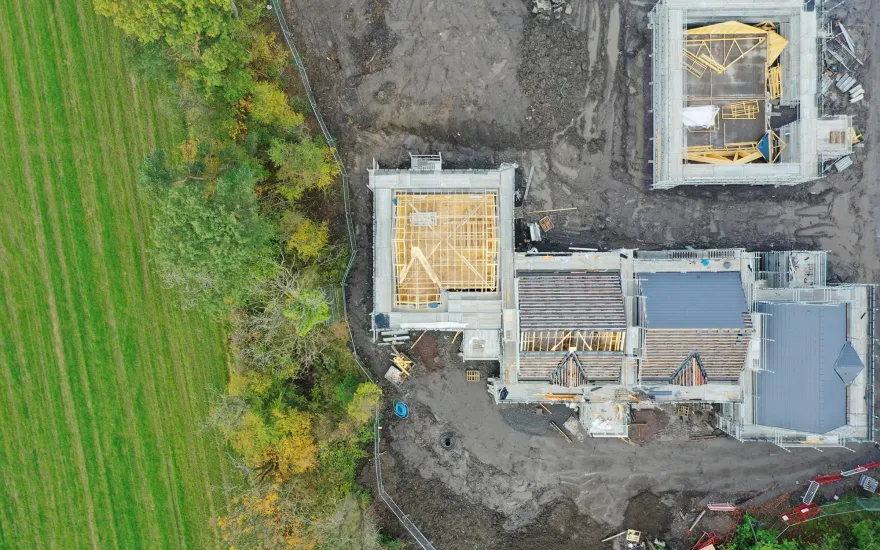Now live: The 2025 Canopy Report. Learn how Americans see trees. GET THE REPORT
Bulletin
When a Storm Strikes
It is a marvel that trees should live to become the oldest living things. Fastened in one place, their struggle is incessant and severe. From the instant a tree casts its tiny shadow on the ground … it is in danger. – Enos A. Mills, naturalist, c. 1910

Except for the incessant mistreatment by humans, never is danger to a tree greater than during the inevitable trial by storm. The pounding of rain or hail and the fury of wind test the strength of limbs, trunks, and roots.
The homeowner, helpless at the moment, can only watch and hope that the tree survives. Survival or loss — the key can be the care you give your tree before and immediately after a storm. Knowing ahead of time what to do when a storm strikes can also prevent or minimize your financial loss.
It was one of those storms that was so close there was no pause between the flash of lightning and the deafening clash of thunder. No one on Linwood Avenue slept through this storm, and a light came on here and there to help ward off the fright of the wind and rain beating noisily against bedroom windows.
In the morning, anxious residents looked out to survey the damage. In some yards, only a limb or two lay on the lawn. In others, familiar views were altered forever. Some trees were split, half their crowns bent to the ground like peeled bananas. Here and there, a whole tree lay prone with its roots exposed and limbs tangled amid gutters and wires. Out on the street, branches littered the sidewalks and children were already gathering to play on an old maple that lay like a fortress across the avenue.
In some areas, such as south-central Florida, thunderstorms like this one stalk the countryside as many as 100 days each year. On the Pacific coast, five in a year may be surprising. In the Midwest and middle Atlantic states, ice storms — especially in autumn while leaves are still on trees — add to the endless struggle. Frequent or rare, mild or severe, storms are an inevitable fact of life. This issue of the Tree City USA Bulletin is dedicated to helping people who care about trees minimize the impact of storms on our community forests.
In This Bulletin
Here’s what’s inside:
- The Morning After – tips on assessing damage following a storm and making decisions about affected trees
- Provide Tree First Aid After a Storm – properly caring for trees that have been damaged to give them a good chance of survival
- Storms: The Urban Forestry Response – steps communities can take before and after the storm to support the urban forest, including tips on talking to the media and a list of trees that stand up better in ice storms
